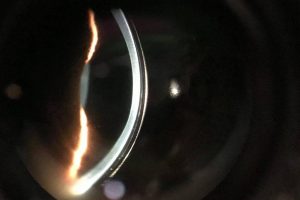Recent research indicates eye movements could reveal the early signs of anorexia.
What is anorexia?
Anorexia nervosa, more commonly referred to as ‘anorexia’, is a significant medical and mental health condition that, if left untreated, can be fatal.
Anorexia nervosa is an illness that impacts women, men, adolescents and children, this condition also does not discriminate between ethnicities, cultures and socioeconomic groups.
Anorexia is a serious mental illness, with a higher mortality rate than any other mental illness.
Anorexia by numbers
These statistics below show the seriousness of this illness:
- Anorexia affects over 9% of the population
- Over 20% of anorexia deaths are by suicide
- 33% to 50% of all anorexia sufferers also have a mood disorder, including depression or bipolar
- Over half of all anorexics also suffer with a range of anxiety issues including obsessive-compulsive behaviors (OCD) and social phobias, such as agoraphobia.
What are the symptoms & signs of anorexia?
One of the most popular myths regarding anorexia nervosa is that sufferers are always underweight.
In reality, many patients with anorexia appear relatively healthy while being severely malnourished— which is why it’s so important to understand all the warning signs and symptoms of anorexia.
Anorexia nervosa is a severe eating disorder that can lead to a variety of health and behavioral problems. There are several indicators and warning signs:
Medical symptoms
- Low weight
- Dramatic weight loss
- Bradycardia
- Disruption or total lack of menses
- Hypotension and orthostasis
- Hair thinning/loss
Behavioral warning signs
- Calorie restriction
- Obsession with food
- Sudden interest in diet
- Fear of weight gain
- The belief that they are overweight when they are underweight
- Refusal of food
- Strange eating habits
- Denial of weight loss or hunger
- Compulsive exercising
- Social withdrawal
Is there a visual sign of anorexia?
Yes!
Eye movements have recently been discovered to be a possible sign of anorexia.
SEE RELATED: Teens, Smoking and Blindness
If you suspect someone you know has anorexia, contact an eye doctor near you who may be able to help.
Eye movements and anorexia
A recent study published in the Australian and New Zealand Journal of Psychiatry (Sept. 2021) found a potential biomarker to identify a person’s risk of developing anorexia nervosa.
According to the findings, monitoring anxiety levels together with a specific type of fast eye movement can successfully identify people who have or are at risk of developing anorexia.
The study, led by experts from Australia’s Swinburne Anorexia Nervosa Research Group, followed up on previous research that suggested that square wave jerks, a type of abnormal eye movement, could be used to distinguish anorexia nervosa sufferers from others.
Square wave jerks are tiny saccadic eye movements. They are unintentional and can be identified by checking for brief flickering moments when a person’s eyes stray away from a target they are focusing on.
The researchers gathered 80 women to test the validity of this potential biomarker: 20 women with anorexia nervosa, 20 recovered anorexia nervosa patients at a normal weight, 20 healthy sisters of women with anorexia nervosa, and 20 healthy controls.
The researchers were able to distinguish anorexia nervosa patients from healthy controls with 92.5% accuracy when eye movements were coupled with an anxiety measure known as the State Trait Anxiety Inventory.
Surprisingly, there was no difference in square wave jerk rates between anorexia nervosa patients, recovered anorexia nervosa patients, and healthy sisters of anorexia nervosa patients.
Regardless of the acute disease activity, this strongly suggests that the ailment has a hereditary component.
LEARN MORE: Guide to Eye Health
If you suspect someone you know may have anorexia, contact an eye doctor near you.
Researchers hope to be able to utilize eye twitching as a screening tool to identify patients who are at risk of developing anorexia nervosa.
This research may allow doctors to screen individuals and provide support to help them avoid this serious disease.










